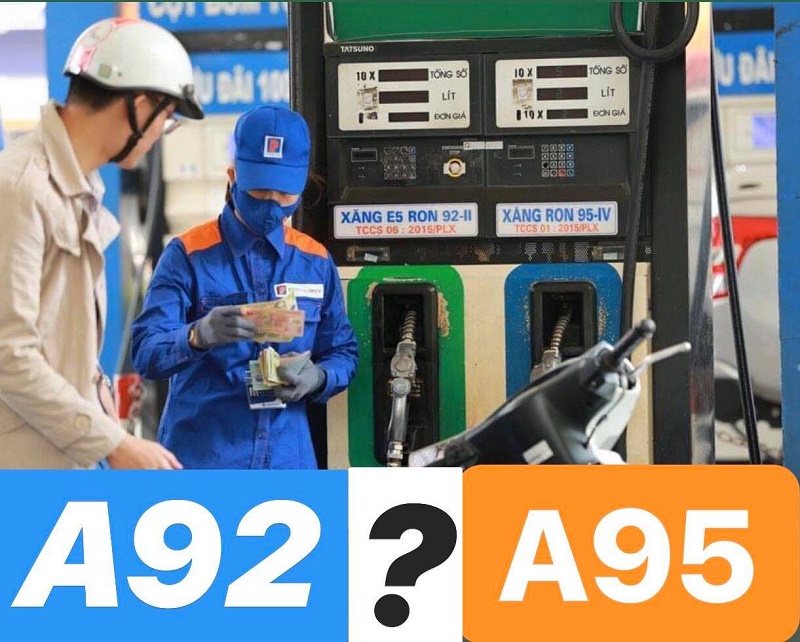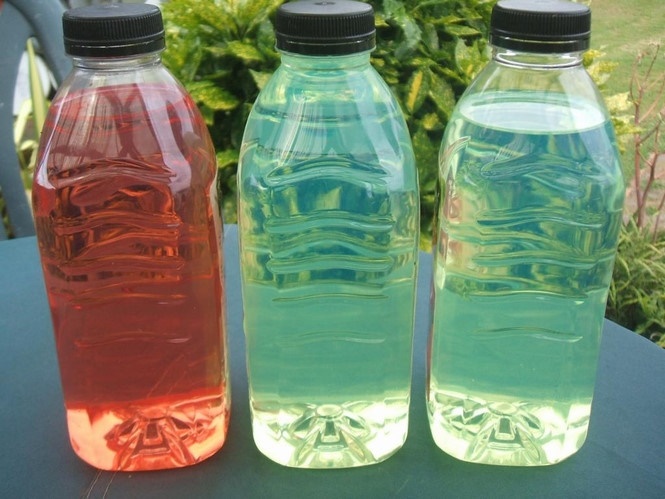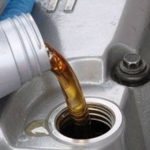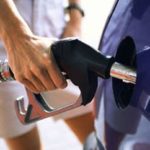Should you choose between RON 92 and RON 95 gasoline?
In the Vietnamese market, there are four common types of fuel for internal combustion engine vehicles: RON 92 and RON 95 gasoline, E5 gasoline, and diesel. Among these, newer types of fuel such as RON 95 and E5 gasoline are often used interchangeably by many people without considering whether these fuels are truly suitable for their vehicles.
Theoretically, the numbers 92 and 95 refer to the Octane Rating (RON), indicating the gasoline’s resistance to detonation. The higher the octane number, the better the gasoline’s detonation resistance. At the same temperature and pressure conditions, RON 95 gasoline is more difficult to ignite compared to RON 92.
Each engine will have a different compression ratio, so gasoline is also categorized into multiple octane levels to optimize engine performance. Higher octane gasoline is used for engines with a higher compression ratio, and vice versa.

RON 95 gasoline is suitable for engines with a compression ratio of 10:1 or higher, while RON 92 is ideal for engines with a compression ratio below 9.5:1. E5 gasoline, being a blend based on RON 92, is only compatible with engines with a maximum compression ratio of up to 9.5:1.
Many users still believe that the higher the RON number, the better it is for their vehicles, assuming it to be cleaner and more efficient. As a result, they often opt for RON 95 gasoline. This is a common misconception as RON 95 gasoline is only beneficial for vehicles with electronic carburetors or electronic fuel injection systems. Using this type of gasoline in vehicles with conventional carburetors will not yield the expected results and may even lead to issues such as insufficient air, excess gasoline, or poor engine performance if not properly adjusted.
On the other hand, using RON 92 gasoline in vehicles with electronic carburetors or fuel injectors can cause fuel dilution, leading to incorrect sensor readings, detonation in the injectors or intake manifold of the electronic system, and the formation of deposits and blockages. It can also cause early detonation in the engine, resulting in power loss and increased fuel consumption.
For high-end scooter models such as the Honda SH, Piaggio, or Spacy, the manufacturers usually recommend using RON 95 gasoline. This is because using RON 95 gasoline in these high-end scooters can reduce energy loss, overheating, or damage to the vehicle over time, ensuring the optimal performance of the engine.
What happens if you mix RON 95 and RON 92 gasoline?
It is important to note that mixing RON 92 and RON 95 gasoline will not produce RON 93 or R94 gasoline, as some people may mistakenly believe. When RON 95 and RON 92 are mixed, they exist side by side, leading to inefficient engine performance due to uneven compression. Additionally, the continuous occurrence of early or late detonation can result in power loss and the formation of deposits since the two types of gasoline have completely different detonation rates.
Some types of gasoline are blended with ethanol, such as E5 biofuel, to reduce costs. While this may seem harmless, it can cause overheating in the engine, especially in popular car models designed with rubber seals and pistons that are only compatible with regular gasoline. Therefore, if used for an extended period, this type of fuel can cause aging of rubber gaskets and seals or damage to other components in the fuel system or intake manifold. However, due to its low cost, many people still opt for this type of gasoline.

To use gasoline blended with ethanol, the internal engine components, including rubber seals, gaskets, and pistons, must be compatible with this type of fuel.
One of the most significant mistakes is filling a diesel-powered vehicle with gasoline or vice versa. Since diesel engines do not use spark plugs for combustion but rely on compression to ignite the fuel, filling a diesel engine with gasoline can cause hydraulic lock and damage the fuel tank and fuel lines due to the solvent properties of gasoline, which can dissolve diesel and expand rubber hoses and seals in the engine.
Conversely, filling a gasoline-powered vehicle with diesel will result in choking, detonation, and blockage in the fuel intake system, rendering the vehicle inoperable.
According to Sai Gon The Thao






































